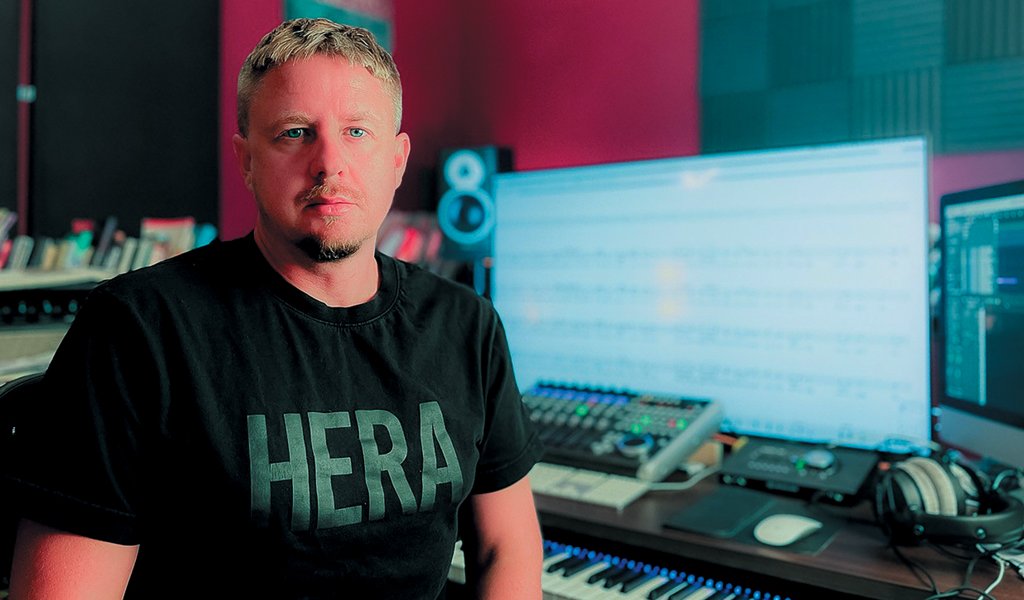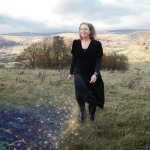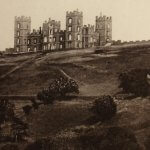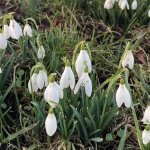In this 40th anniversary year of the 1984-85 miners’ strike, Leonie Martin talks to Jonathan Francis about the forthcoming premier of his latest groundbreaking musical composition: a tribute to the lost mining communities of north Derbyshire.
FORTY years on from the 1984-85 miners’ strike, the death of the mining industry coupled with the demise of heavy engineering has had a deep, long-lasting effect. But nothing is lost without a fight. This fight – and the stories of those who fought – will be commemorated on October 12 at the premier of a new piece of work written by Chesterfield’s own Jonathan Francis.
Performed at the Church of Saint Mary & All Saints (The Crooked Spire), A Northern Requiem will feature The Rose Choir from Chesterfield Studios, and Harlequin Brass, one of the country’s leading brass ensembles, with accomplished local soloists.
Some fifteen years ago, Jonathan Francis (now Musical Director for the Rose Choir at Chesterfield Studios and also Artistic Director at Rose Hill Arts Centre) was working with pupils at a local secondary school. It shocked him to discover that many of the children knew little or nothing about one of the most significant cultural moments in local living memory – the miners’ strike of 1984. ‘What is coal mining?’ some of them even asked him!
Jonathan said: “Within just 25 years, a key part of our social history seemed to have been lost from memory. Then, as I drove around the old coalfields around Chesterfield, I began to notice that many of the landmarks associated with the local mines and their communities have since been replaced with characterless modern warehouses and industrial estates. It’s as if the whole history is being systematically erased.”
“There was no plan for what would happen to these communities, these families, these individuals. Not only their collieries, but their pubs, shops and clubs were forced to close. Brass bands were a big part of these communities. The average collier in a brass band had the opportunity not only of playing for his community, but also the chance of going right to the top in the music world playing at The Royal Albert Hall. This cultural opportunity has all but gone now – restricted to those from more privileged backgrounds.
“Everything has gone. There is talk of ‘The North’ being ‘Levelled Up’, but to me this sounds like robbing someone of an entire house, then turning up forty years later and offering them a new microwave in compensation. I wanted to represent through music what people actually went through, how this differed from what was shown by the media at that time, and to celebrate our lost social and cultural heritage. The people of north Derbyshire whose lives were irrevocably changed, and the fight they put up on behalf of their communities, deserves to be celebrated.
“A friend once said to me: write about what you know. I do not come from a mining family, but I am deeply rooted in our Derbyshire community, and often drive through these once thriving communities with a deep sense of sadness and rage. I felt compelled to respond through the medium of my own profession in the arts.
“I had initially decided I wanted to compose a musical about the story of the miners and the demise of their communities for a 30th anniversary event back in 2014. Then, for various reasons, this was put on hold. The longer I left it, the more I started to doubt if I was up to the challenge of writing the script, music and lyrics for this musical. Time passed. Lockdown presented an unexpected chunk of free time to begin work on the musical, but family and work commitments took over.
“Then Harlequin Brass got in touch to ask if I would like to do a concert with them for the 175th anniversary of the death of George Stephenson in 2023: something representative of the Industrial North. We also discussed ideas around the 1984-85 Miners’ Strike – perhaps commemorating this with music from Brassed Off. This also ended up on the back burner, but it expanded my original idea: instead of a piece of musical theatre, I would write a Cantata (choral work) to commemorate not only our coal mining heritage but also its impact within Northern communities.
“The Derbyshire Miners Association was once based just down the road from our new Rose Hill Arts Centre on Saltergate (RHAC) and Arthur Scargill himself spoke in Eastwood Hall. Though the industry is no more, the shadows still loom large across town.
“Yes, this piece of work represents anger and elements of violence, because without those it wouldn’t be authentic. Many of these communities never recovered. Skilled jobs were never replaced: mining work involved risk and muck, but this bonded communities under a shared set of circumstances, forging an identity which was ripped from beneath their feet.
‘A Northern Requiem for choir and brass is based on the text of the Catholic Requiem Mass interwoven with poetry from and about the 1984-5 Miners’ Strike. It celebrates the brave workers who stood against job losses, the women who fought against pit closures and commemorates the communities who lost their way of life. It laments what has gone before and offers hope for what is to come.
“The concept is so huge it can easily overtake the need to just begin. I tend to write the end section of a new work first, then the beginning. Different parts came together more easily than others. For example, the motif for one movement wrote itself in my head while I was walking my son to school one day! Presently I’m working on the Dies irae (Day of Wrath) sequence: which will represent the Battle of Orgreave.
He added: “It becomes a more collaborative process once the singers and the musicians get involved. I get a better sense of what needs to be fine-tuned. There will be 10 brass players and three percussionists from Harlequin Brass; Chesterfield organist George Parsons, a former King’s College Organ Scholar; Chesterfield Studios’ own Rose Choir; and several local soloists including mezzo soprano Louise Collette and Royal Philharmonic violinist Morven Bryce.”
Plans for the concert are expanding by the week: “the intention was for it to ‘launch’ our newly-constituted Rose Hill Arts Centre (RHAC), formerly the Rose Hill United Reformed Church (adjacent to Chesterfield Studios). As word has got out, we soon realised we would need to move the concert to a bigger venue: The Crooked Spire (Saint Mary & All Saints Church).’
Jonathan added: “We have invited many local dignitaries and some of the miners and women who fought against the pit closures. In addition, we will also be showing an exhibition about the Miners’ Strike which is currently doing the rounds in Derbyshire. Tickets are selling fast so if you’d like to join us, don’t leave it to the last minute. We look forward to seeing you on October 12!”
Editor’s Note: For further information about Rose Hill Arts Centre or to purchase tickets for A Northern Requiem, go to: www.RHAC.art or email info@rhac.art






